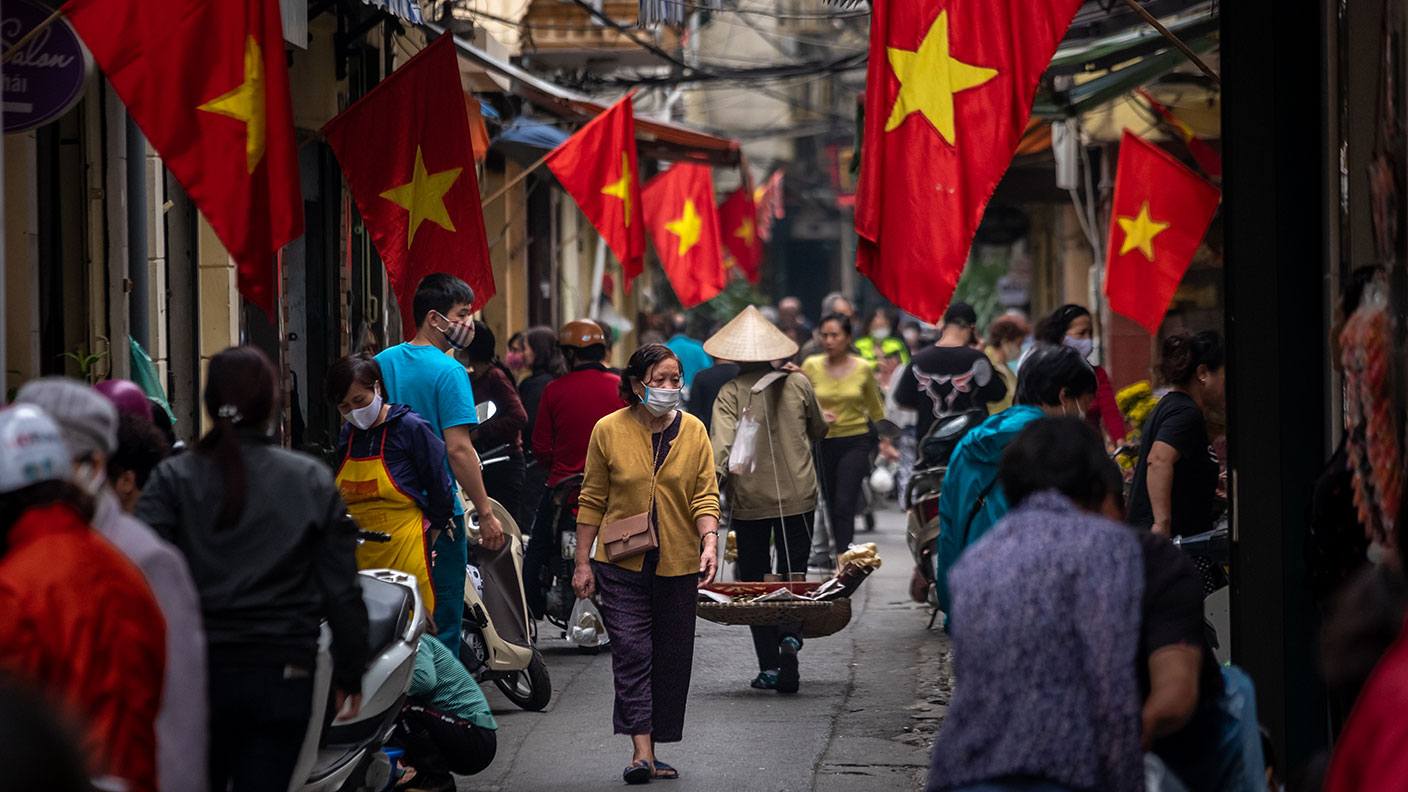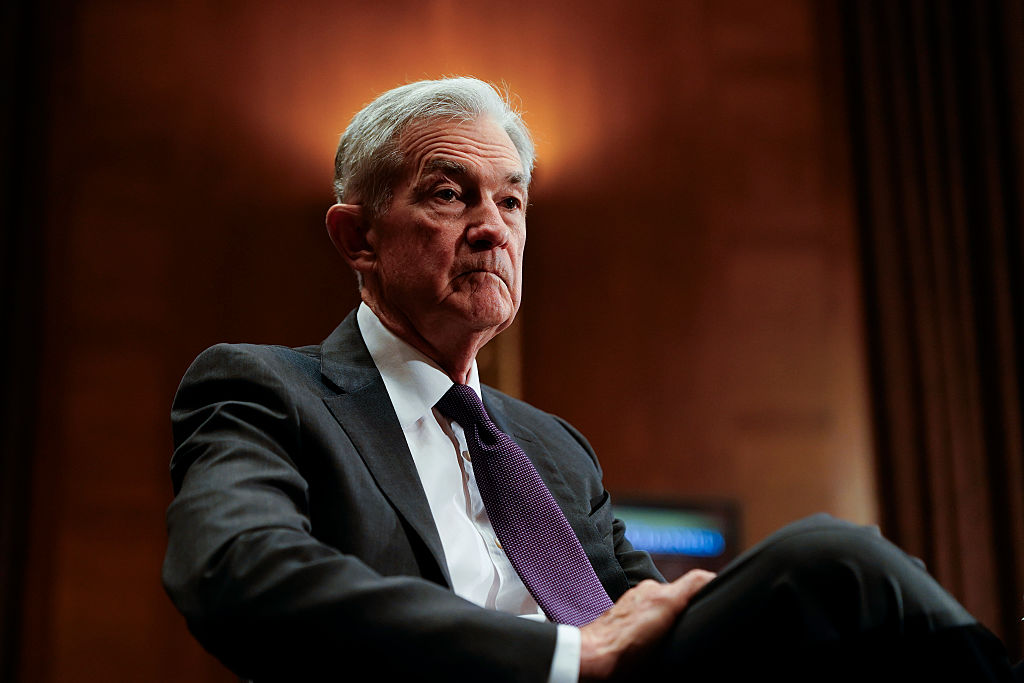How rising Covid cases in Asia spell higher inflation in the US
The Federal Reserve argues that any inflation in the US will be transitory. But that's looking less convincing by the day. And now there's now another factor to consider, says Saloni Sardana. Here, she explains how rising Covid cases in Asia will affect US inflation.


Get the latest financial news, insights and expert analysis from our award-winning MoneyWeek team, to help you understand what really matters when it comes to your finances.
You are now subscribed
Your newsletter sign-up was successful
Want to add more newsletters?

Twice daily
MoneyWeek
Get the latest financial news, insights and expert analysis from our award-winning MoneyWeek team, to help you understand what really matters when it comes to your finances.

Four times a week
Look After My Bills
Sign up to our free money-saving newsletter, filled with the latest news and expert advice to help you find the best tips and deals for managing your bills. Start saving today!
If anyone was in doubt that the US is heading for a significant bout of inflation, the last few weeks have made it clear. Now there’s another force that will further add to inflationary pressures in the US: rising covid cases in Asia.
The US central bank – the Federal Reserve – argues that any inflation in the US will be transitory, despite unprecedented fiscal and monetary support, including US president Biden’s $1.9trn stimulus and almost $4trn in further infrastructure spending proposals which have yet to be approved. However, this insistence that inflation will be short-lived is looking less convincing by the day.
For example, consumer prices rose by 4.2% in April compared to the previous year, marking the biggest such rise since September 2008. Core consumer price inflation (which excludes volatile food and energy prices), rose by 3% on the year, and 0.9% month on month. That monthly core inflation reading was the highest since 1981.
MoneyWeek
Subscribe to MoneyWeek today and get your first six magazine issues absolutely FREE

Sign up to Money Morning
Don't miss the latest investment and personal finances news, market analysis, plus money-saving tips with our free twice-daily newsletter
Don't miss the latest investment and personal finances news, market analysis, plus money-saving tips with our free twice-daily newsletter
Countries in Asia are experiencing worse Covid-19 outbreaks than last year
Now rising Covid-19 cases in countries such as Vietnam, Korea and Japan look set to further push prices in the US, says Richard Martin, managing director of IMA Asia, with a rise in cases in Southeast Asia exacerbating the current stickiness of global supply chains.
It’s not that the numbers themselves are dramatic in the context. The case figures coming from Indonesia and Vietnam are much lower than seen in other countries earlier in the pandemic, and are nothing like India’s devastating second wave of cases. For example, Vietnam recorded a seven-day average of around 144 cases last week compared to India’s 400,000-odd daily cases.
But the rise in cases is disruptive nevertheless as it means shutting down infrastructure. And it doesn’t help that vaccines aren’t as widespread as in the UK, US, or even Europe. Vietnam has vaccinated less than 1% of its population while Thailand has vaccinated fewer than 1.5% of its people, reports the Guardian.
Why does any of this matter for inflation?
If countries struggle to inoculate their populations, it leaves the region’s manufacturing hubs more vulnerable to Covid-19 outbreaks, which can hammer supply chains. For example, Vietnam shut down four industrial parks last week, including three that are home to Taiwan’s Foxconn, a multinational manufacturer of electronics, due to an outbreak.
Meanwhile, inflation is already rising in double digits, averaging around 10%-12% in Asia, says Martin, which has been partly driven by a boom in commodity prices. Commodities such as copper, lumber and iron ore, to name a few, have seen their prices hit record highs as the world copes with a much stronger recovery and higher demand.
That has contributed to rising inflation in the cost of goods. “And that goes through to consumer prices in the United States, faster than it goes to consumer prices in China”, adds Martin.
The world was already dealing with a shortage in global semiconductor chips – a key ingredient used in the production of almost everything including fridges, laptops, video games – due to a host of unfortunate events around the globe. Severe droughts in Taiwan, a fire in a Japanese plant owned by Renesas Electronics, and an unusually cold spell in Texas earlier in the year are all some of the factors that have contributed to the global chip shortage.
Now rising Covid-19 cases in Asia, if not controlled, could make this situation worse and further dent supply chains. That will put even more pressure on Jerome Powell, governor of the Federal Reserve,, even though – as Wharton professor Jeremy Siegel puts it – Powell is the “most dovish governor” in history.
So now what does this mean for investors?
As far as markets are concerned, the main issue is that the higher inflation goes, the harder it gets for the Fed to resist “tapering” – that is, tightening monetary policy. Some Fed participants are already talking about it, as minutes from last month’s meeting indicated.
The minutes stated: “A number of participants suggested that if the economy continued to make rapid progress toward the [policy-setting] Committee’s goals, it might be appropriate at some point in upcoming meetings to begin discussing a plan for adjusting the pace of asset purchases.”
However, while the Fed may or may not start to tighten policy, investors might want to start considering the risk that the Fed will act not too soon, but far too late. For example, Siegel is bracing for inflation as high as 20% in the next two to three years, due to the “increase in money supply” – a reference to the trillions the country’s central bank has pumped into the economy since the Covid crisis began.
So rather than betting on inflation being “transitory”, it might be a good idea to look at “inflation proofing” your portfolio. My colleague John looked at this in more detail earlier today.
For more on all these topics, subscribe to MoneyWeek magazine and get your first six issues free.
Get the latest financial news, insights and expert analysis from our award-winning MoneyWeek team, to help you understand what really matters when it comes to your finances.
Saloni is a web writer for MoneyWeek focusing on personal finance and global financial markets. Her work has appeared in FTAdviser (part of the Financial Times), Business Insider and City A.M, among other publications. She holds a masters in international journalism from City, University of London.
Follow her on Twitter at @sardana_saloni
-
 Should you buy an active ETF?
Should you buy an active ETF?ETFs are often mischaracterised as passive products, but they can be a convenient way to add active management to your portfolio
-
 Power up your pension before 5 April – easy ways to save before the tax year end
Power up your pension before 5 April – easy ways to save before the tax year endWith the end of the tax year looming, pension savers currently have a window to review and maximise what’s going into their retirement funds – we look at how
-
 How a dovish Federal Reserve could affect you
How a dovish Federal Reserve could affect youTrump’s pick for the US Federal Reserve is not so much of a yes-man as his rival, but interest rates will still come down quickly, says Cris Sholto Heaton
-
 New Federal Reserve chair Kevin Warsh has his work cut out
New Federal Reserve chair Kevin Warsh has his work cut outOpinion Kevin Warsh must make it clear that he, not Trump, is in charge at the Fed. If he doesn't, the US dollar and Treasury bills sell-off will start all over again
-
 'Investors should brace for Trump’s great inflation'
'Investors should brace for Trump’s great inflation'Opinion Donald Trump's actions against Federal Reserve chair Jerome Powell will likely stoke rising prices. Investors should prepare for the worst, says Matthew Lynn
-
 'Governments are launching an assault on the independence of central banks'
'Governments are launching an assault on the independence of central banks'Opinion Say goodbye to the era of central bank orthodoxy and hello to the new era of central bank dependency, says Jeremy McKeown
-
 Will Donald Trump sack Jerome Powell, the Federal Reserve chief?
Will Donald Trump sack Jerome Powell, the Federal Reserve chief?It seems clear that Trump would like to sack Jerome Powell if he could only find a constitutional cause. Why, and what would it mean for financial markets?
-
 What's behind the big shift in Japanese government bonds?
What's behind the big shift in Japanese government bonds?Rising long-term Japanese government bond yields point to growing nervousness about the future – and not just inflation
-
 Do we need central banks, or is it time to privatise money?
Do we need central banks, or is it time to privatise money?Analysis Free banking is one alternative to central banks, but would switching to a radical new system be worth the risk?
-
 Will turmoil in the Middle East trigger inflation?
Will turmoil in the Middle East trigger inflation?The risk of an escalating Middle East crisis continues to rise. Markets appear to be dismissing the prospect. Here's how investors can protect themselves.
